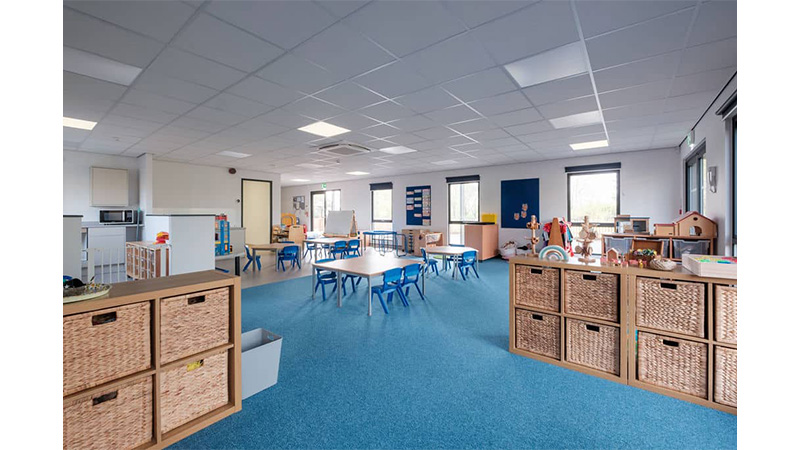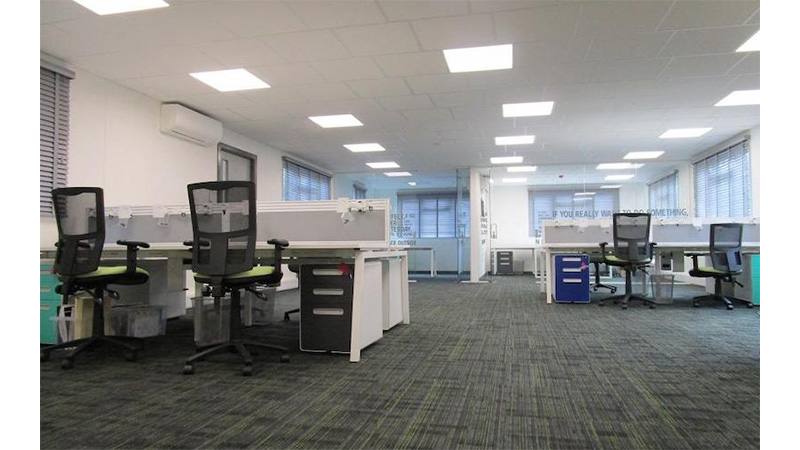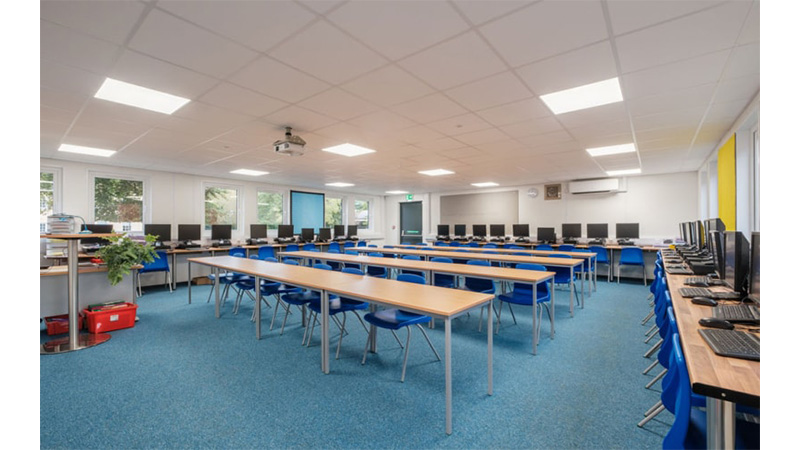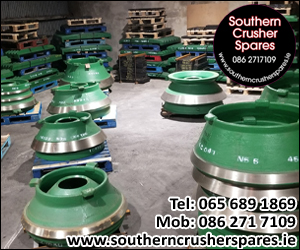Address
Unit FSC 10, Farringdon Business Park
Lower Farringdon
Lower Farringdon
Nr Alton
Hampshire
GU34 3DZ
About PF Modular
PF Modular supplies, hires and installs portable and modular buildings from our Hampshire base, just outside Alton. Since 2005, we've been supplying modern, sustainable buildings to a varied range of sectors. You might know of us as Portable Facilities - same team, same quality, with a new name that reflects our business.
What Are Modular Buildings?
They are sectional, semi-permanent, prefabricated structures consisting of one, two or multiple building components called modules. Read our detailed post on modular construction methods.
These can be connected side-by-side, end-to-end, or stacked up to four storeys high, to create a semi-permanent structure with a minimum lifespan of 25 plus years.
They are green too – see our recent study on CO2 savings that can be achieved. Of course, energy use is a concern, read how energy usage can be helped via modular construction.
Modular buildings
PF Modular is a modular construction company supplying modular buildings for sale across various market sectors throughout the UK. Our prefabricated buildings are built to a very high standard at a competitive price with multiple sizes and specifications. We can customise them to suit your business requirements.
Our Modular Building process
We have the knowledge and expertise to work with you from initial enquiry, through design and development, to the final delivery and installation of your new building. As full members of the MPBA, we are proven and trusted experts in the industry. We can even help with finance.
Our project management and complete turnkey package is designed to reduce project costs and timescales while ensuring you receive a hassle-free experience, including:
- Crane Hire
- Groundworks
- Building control and planning application
- Transportation
- Access ramp and steps
Portable Cabins For Sale
PF Modular supplies new, used and refurbished portable cabins to a wide range of market sectors throughout the UK. Offering a fast, affordable solution to your accommodation needs, our robust, high-quality cabins fit a variety of requirements. Check our current stock – if there’s something specific you need, please contact us. New for this year, we are offering cabin hire for medium to long term use.
A portable cabin is a self-contained, standalone building that’s designed and built to be easily transported, rather than having a single, fixed location. Constructed offsite in a factory, they are transported between locations by lorry and lifted into position by crane.
While the terms ‘portable cabin’ and ‘modular building’ are often used interchangeably, there are important differences between the structures. Modular buildings are constructed from two or more individual building modules, which are delivered to site and connected together to create buildings of various sizes and multiple storeys. They are semi-permanent structures, while portable cabins tend to be used temporarily and relocated.
Our Stock
- NEW MODULAR BUILDINGS
- SECOND HAND MODULAR BUILDINGS
- REFURBISHED MODULAR BUILDINGS
- NEW PORTABLE CABINS
- SECOND HAND PORTABLE CABINS
Gallery
Videos
News
Over the last few years, sustainability has grown from a buzzword to an essential imperative across various sectors, including education. As educators and project managers, the drive to integrate sustainable practices into the core of our schools has never been more pressing.
Modular school buildings play a pivotal role in supporting our nation’s schools and promote sustainable practices in education. They help to underline the importance of sustainability and support schools in transforming their environments for a greener future.
The Importance of Sustainability in the School Curriculum
Incorporating sustainability into the school syllabus is a necessity for preparing future generations to tackle environmental challenges. Climate change, resource depletion and ecological degradation are issues that demand informed and proactive action.
By including sustainability in the curriculum, schools can inform students of the issues that threaten our environment. Education has the power to create environmentally conscious individuals who are equipped with the knowledge and skills to make responsible decisions.
Teaching sustainability has wider implications than the theory of creating a greener planet. There is a practical nature to teaching sustainability; it can develop critical thinking, problem-solving and a sense of global responsibility among students.
Schools that introduce young minds to concepts like renewable energy, waste reduction and sustainable living help to develop an enhanced awareness. Education can influence young people’s choices and actions throughout their lives. Students can become advocates for sustainability; they can then influence positive change in their families and beyond.
Building with wooden exterior panels has a covered walkway supported by metal pillars; situated in a school yard with grass and wooden fences.
Schools Help Improve Environmental Development
Schools are not only places of learning; they also have the power to influence the communities around them. As such, they play a significant role in promoting and implementing sustainable practices. Across the UK, schools are embracing their responsibility and actively working to improve their immediate environments.
Green Spaces and Biodiversity
Many schools are transforming their grounds into lush green spaces, creating areas where nature can thrive. From planting trees and shrubs to establishing wildlife gardens and outdoor classrooms, these initiatives provide students with hands-on learning experiences. Schools are helping to enhance learning while improving the local ecosystem. Green spaces in schools offer a variety of benefits, including improved air quality and enhanced mental well-being for students and staff.
Energy Efficiency and Renewable Energy
Schools are increasingly investing in energy-efficient technologies and renewable energy sources. Installing solar panels and using energy-efficient lighting are just a couple of ways schools are reducing their carbon footprint. These practices not only lower operational costs but demonstrate the practical results of sustainability in action. By seeing the results helps to reinforce the lessons taught in the classroom.
Waste Reduction and Recycling
Waste reduction and recycling programs are becoming standard practice in schools. Comprehensive recycling schemes and encouraging the use of reusable materials are significantly cutting down on waste schools send to landfill. These practices teach students the importance of resource conservation. They also provide them with real examples of how small actions can make a big difference.
Classroom with blue chairs and tables, bookshelves, and organized bins; walls have educational displays, windows, and a door leading outside, with a carpeted area for activities.
Modular Buildings teach sustainability
Modular buildings are helping to drive sustainability in our country’s schools. Prefabricated structures from modular building companies provide a more positive environmental impact than traditional construction methods. They offer many more benefits to schools considering new or extended premises.
Reduced Environmental Impact
Modular buildings are designed and manufactured off-site in controlled factory environments, which significantly reduces the environmental impact of construction. This method minimises waste, lowers energy consumption and reduces the noise and air pollution often experienced on building sites. Controlled factory construction also ensures that materials are used efficiently, meaning any excess can be recycled or repurposed.
Energy Efficiency
Modern modular buildings are designed to be energy efficient. Buildings include high-performance insulation, energy-efficient windows and climate control systems to ensure that they require less energy for heating and cooling. Many modular buildings are also designed to accommodate renewable energy installations, suc
Modular school buildings play a pivotal role in supporting our nation’s schools and promote sustainable practices in education. They help to underline the importance of sustainability and support schools in transforming their environments for a greener future.
The Importance of Sustainability in the School Curriculum
Incorporating sustainability into the school syllabus is a necessity for preparing future generations to tackle environmental challenges. Climate change, resource depletion and ecological degradation are issues that demand informed and proactive action.
By including sustainability in the curriculum, schools can inform students of the issues that threaten our environment. Education has the power to create environmentally conscious individuals who are equipped with the knowledge and skills to make responsible decisions.
Teaching sustainability has wider implications than the theory of creating a greener planet. There is a practical nature to teaching sustainability; it can develop critical thinking, problem-solving and a sense of global responsibility among students.
Schools that introduce young minds to concepts like renewable energy, waste reduction and sustainable living help to develop an enhanced awareness. Education can influence young people’s choices and actions throughout their lives. Students can become advocates for sustainability; they can then influence positive change in their families and beyond.
Building with wooden exterior panels has a covered walkway supported by metal pillars; situated in a school yard with grass and wooden fences.
Schools Help Improve Environmental Development
Schools are not only places of learning; they also have the power to influence the communities around them. As such, they play a significant role in promoting and implementing sustainable practices. Across the UK, schools are embracing their responsibility and actively working to improve their immediate environments.
Green Spaces and Biodiversity
Many schools are transforming their grounds into lush green spaces, creating areas where nature can thrive. From planting trees and shrubs to establishing wildlife gardens and outdoor classrooms, these initiatives provide students with hands-on learning experiences. Schools are helping to enhance learning while improving the local ecosystem. Green spaces in schools offer a variety of benefits, including improved air quality and enhanced mental well-being for students and staff.
Energy Efficiency and Renewable Energy
Schools are increasingly investing in energy-efficient technologies and renewable energy sources. Installing solar panels and using energy-efficient lighting are just a couple of ways schools are reducing their carbon footprint. These practices not only lower operational costs but demonstrate the practical results of sustainability in action. By seeing the results helps to reinforce the lessons taught in the classroom.
Waste Reduction and Recycling
Waste reduction and recycling programs are becoming standard practice in schools. Comprehensive recycling schemes and encouraging the use of reusable materials are significantly cutting down on waste schools send to landfill. These practices teach students the importance of resource conservation. They also provide them with real examples of how small actions can make a big difference.
Classroom with blue chairs and tables, bookshelves, and organized bins; walls have educational displays, windows, and a door leading outside, with a carpeted area for activities.
Modular Buildings teach sustainability
Modular buildings are helping to drive sustainability in our country’s schools. Prefabricated structures from modular building companies provide a more positive environmental impact than traditional construction methods. They offer many more benefits to schools considering new or extended premises.
Reduced Environmental Impact
Modular buildings are designed and manufactured off-site in controlled factory environments, which significantly reduces the environmental impact of construction. This method minimises waste, lowers energy consumption and reduces the noise and air pollution often experienced on building sites. Controlled factory construction also ensures that materials are used efficiently, meaning any excess can be recycled or repurposed.
Energy Efficiency
Modern modular buildings are designed to be energy efficient. Buildings include high-performance insulation, energy-efficient windows and climate control systems to ensure that they require less energy for heating and cooling. Many modular buildings are also designed to accommodate renewable energy installations, suc
 UK
UK Ireland
Ireland Scotland
Scotland London
London




















